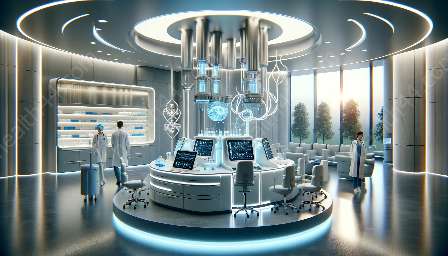Histocompatibility testing plays a crucial role in understanding the compatibility between the tissues of different individuals. Its significance extends to medical laboratory sciences and healthcare, particularly in the context of organ transplantation, autoimmune diseases, and immune system disorders.
The Science of Histocompatibility Testing
Histocompatibility refers to the recognition or rejection of transplanted tissues by the recipient's immune system. Histocompatibility testing helps assess the compatibility between tissues and organs from different individuals, particularly in the context of organ transplants.
One of the key determinants of histocompatibility is the major histocompatibility complex (MHC), a large genomic region found in most vertebrates. The genes within the MHC play a crucial role in the immune system's ability to recognize and distinguish between self-cells and foreign cells.
Medical laboratory scientists use various techniques to assess histocompatibility, including human leukocyte antigen (HLA) typing. This process involves analyzing the genes that encode HLA proteins, which are essential for immune system function and are highly polymorphic, meaning they vary widely between individuals. HLA typing is crucial for assessing the compatibility of donors and recipients in organ transplantation.
Applications in Organ Transplantation
Histocompatibility testing is fundamental in the field of organ transplantation. Before a transplant can take place, histocompatibility testing is conducted to determine the degree of compatibility between the donor’s tissues and the recipient’s immune system.
HLA matching is a critical aspect of histocompatibility testing in organ transplantation. The closer the match between the donor and recipient’s HLA types, the lower the risk of rejection and the better the long-term outcomes for the transplant recipient. By analyzing the HLA genes of both the donor and recipient, medical laboratory scientists can identify suitable donor-recipient pairs, increasing the success rates of transplant procedures.
Implications for Autoimmune Diseases and Immune System Disorders
Histocompatibility testing also holds significant implications for understanding and managing autoimmune diseases and immune system disorders. Many of these conditions are related to the immune system’s inability to distinguish between self and non-self cells, leading to the destruction of healthy tissues.
By analyzing histocompatibility factors, medical laboratory scientists can gain insights into the genetic predisposition of individuals to certain autoimmune diseases. This knowledge can aid in early diagnosis, prognosis, and the development of personalized treatment strategies for patients with autoimmune conditions.
Additionally, histocompatibility testing is instrumental in identifying potential donors for hematopoietic stem cell transplantation in the treatment of certain immune system disorders. Matching the HLA types between the donor and recipient is crucial in reducing the risk of graft-versus-host disease and improving the overall success of the transplantation.
Evolving Technologies and Future Developments
Advancements in histocompatibility testing technologies continue to enhance the precision and reliability of compatibility assessments. Next-generation sequencing (NGS) techniques have revolutionized HLA typing, enabling comprehensive and high-resolution analysis of HLA genes, which is particularly beneficial for complex cases and rare allele identification.
Furthermore, the integration of bioinformatics and artificial intelligence in histocompatibility testing is opening new frontiers in analyzing complex immunogenetic data and identifying novel biomarkers related to histocompatibility. These developments hold promise for improving patient outcomes, reducing transplant rejections, and expanding the understanding of histocompatibility in diverse clinical contexts.
Conclusion
Histocompatibility testing is an essential component of medical laboratory sciences, with profound implications for organ transplantation, autoimmune diseases, and immune system disorders. By understanding and assessing histocompatibility, healthcare professionals can make informed decisions regarding transplant compatibility, disease predisposition, and personalized treatment strategies. As technology continues to advance, histocompatibility testing is expected to play an increasingly pivotal role in shaping the future of healthcare and improving patient care.


